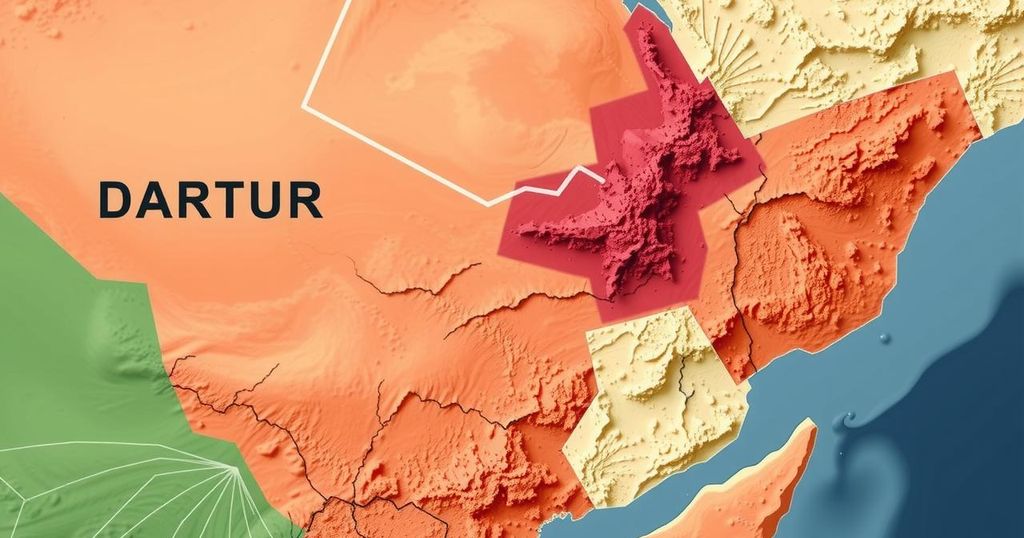Sudan is in the grips of a worsening famine crisis due to a civil war that has left millions in need of urgent food aid. Reports indicate that starvation impacts five regions, with 24.6 million people facing food insecurity. Efforts to mediate peace between warring factions have failed, leading to heightened malnutrition and conflict-related violence, driving further agricultural disruption.
Sudan is currently experiencing a profound famine crisis exacerbated by a prolonged civil war. Reports from independent food security experts indicate that starvation is intensifying, impacting various regions including five specific areas in Darfur and South Kordofan. This escalation in hunger is troubling, with an estimated 24.6 million people—approximately half of Sudan’s population—requiring immediate food assistance. The root cause of this crisis lies in the two-year civil conflict that has significantly disrupted agricultural activities and led to widespread malnutrition.
Despite various attempts at mediation to mitigate the conflict between the Sudanese army and the paramilitary Rapid Support Forces (RSF), no substantial progress has been made. The joint coup in 2021 by these factions has led to a power struggle that spiraled into a humanitarian disaster beginning in 2023. The UN’s Famine Review Committee (FRC) issued a stern warning that failure to resolve the conflict could result in an even larger catastrophe, as the situation has already been classified as one of the worst humanitarian crises globally.
Recently, the government backed by the military has criticized the FRC’s findings, stating they have undermined Sudan’s dignity with allegedly unreliable reports. However, the IPC first identified famine conditions at the Zamzam camp in Darfur, where a significant refugee population is located. Remarkably, famine conditions have now appeared in other camps, indicating a rapid deterioration of the situation. The FRC characterized famine as a critical breakdown of essential systems, leading to severe human suffering and desperate circumstances for entire communities.
Experts predict further escalation with five additional regions in Darfur at risk of famine by May and an alarming potential spread to 17 other areas. The ongoing violence in Darfur and South Kordofan has harshly impacted farming, with many farmers forced to abandon their fields, exacerbating the food crisis. Civilians have suffered immensely, facing numerous assaults, abduction, and loss of life amid the turmoil, with estimates suggesting numerous fatalities since the conflict began.
The civil conflict in Sudan has drastically affected the nation’s agricultural and social systems, leading to significant food insecurity. Initiated by a power struggle between military factions after a joint coup, the ensuing violence has engendered one of the most severe humanitarian situations globally. Numerous reports indicate that the situation could worsen without immediate intervention and resolution of hostilities. The UN and affiliated organizations continue to monitor and report on the famine status, highlighting the dire need for decisive humanitarian aid and conflict resolution efforts.
The ongoing famine crisis in Sudan, attributed to a drawn-out civil conflict, requires urgent attention as nearly half the population faces starvation. With significant regions jeopardized and governmental denial of the famine’s severity, it is essential to address the conflict directly to restore food security. The potential for further disaster demands immediate humanitarian intervention and the establishment of peace to prevent an escalation of suffering among the civilian population.
Original Source: www.bbc.com






